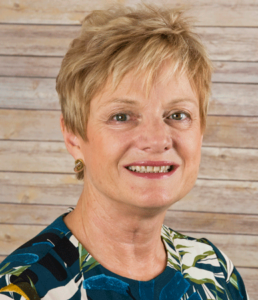Dear Shirley

Dear Shirley
What can I do to encourage engagement and a positive approach to coaching?
I have a coachee who doesn’t want to be asked questions, and has expressed their resistance to being coached. Their past experiences left them frustrated when they were asked a lot of questions to which they didn’t have any answers. They think their time would be better spent learning solutions and ideas from me and want to be “told what to do and given new ideas they haven’t tried”.
Your advice on how to approach this situation would be of great value. I have tried to explain what coaching is and how it encourages self discovery…but this hasn’t resonated.
– Ania
Response:
Dear Ania,
Many thanks for sharing your problem Ania. I think there’s a real case for using the RADAR coaching model in this instance. Let me explain.
Relationships:
Step one, get your relationship right from the beginning. How does this person want to be coached? Ask yourself how you can honour what they want to gain from this relationship.
I talk about giving people a gift; something they want or need from you to help them to move forward. That gift could be in the form of a tip, a technique, a suggestion or even an answer that this person appears to be asking for. It’s a ‘trust builder’ that will help them to realise that you have positive intent and want to help them.
There’s also an opportunity when you’re starting out on your relationship to give yourself some wiggle room. Let them know that you can be a ‘follower coach’, with them setting the agenda. Or you can be a ‘helpful coach’ or a ‘stronger coach’ that challenges them.
If they were to rank these styles, from super helpful and supportive as number one, up to a highly challenging approach at 10, what would be comfortable for them right now? The ‘right now’ is important as you can move that tension up as you build trust.
You mention past frustrations. If a person has had a negative coaching experience, just seeking to understand that can help you to coach in a style that will build their faith in you.
Alignment:
As coaches, we need to align our performance coaching to the goals of the individual and organisation. However there’s another perspective of alignment and that’s aligning your coaching style to their developmental needs.
Thinking of Ken Blanchard’s model of situational leadership, it may be that this person is asking for answers, simply because they don’t know what they are!
Rather than causing them additional stress by pushing them to come up with the options, you could share that gift at the beginning of your relationship by offering some suggestions. It might just be what moves them from that disillusioned learner to a self-reliant achiever, who is very confident about what options they have.
Desire:
This is about a desire for development and where we can use our antena as coaches, picking up on things such as cynicism. You may need to have a discussion about how you can add value as a coach.
It might just be a fear that they don’t know the answer and they don’t want to make a fool of themselves. Seeking to understand and clarify what their desire for development is, will help you gain insight into how to help them.
Accountability:
Whilst I suggest you give this person that gift and support them by offering suggestions at the beginning, there is a time when you start to encourage them to be accountable and come up with options for themselves.
You’ve been offering solutions at the beginning of the relationship, it’s now about them choosing which is the most attractive to them.
For example, questions such as ‘what would you normally do in this circumstance?’, ‘what would you like to try that you’ve never tried before?’ or ‘how many alternative approaches can you dream up?’, can be introduced after they’ve tried some options that you’ve suggested and reached some success with them. It’s now about handing the baton to them.
We want to trigger their creativity but it has to be at a time when they’re ready and comfortable.
Results:
They will achieve results which you can both celebrate that will build your coaching relationship.
– Shirley
